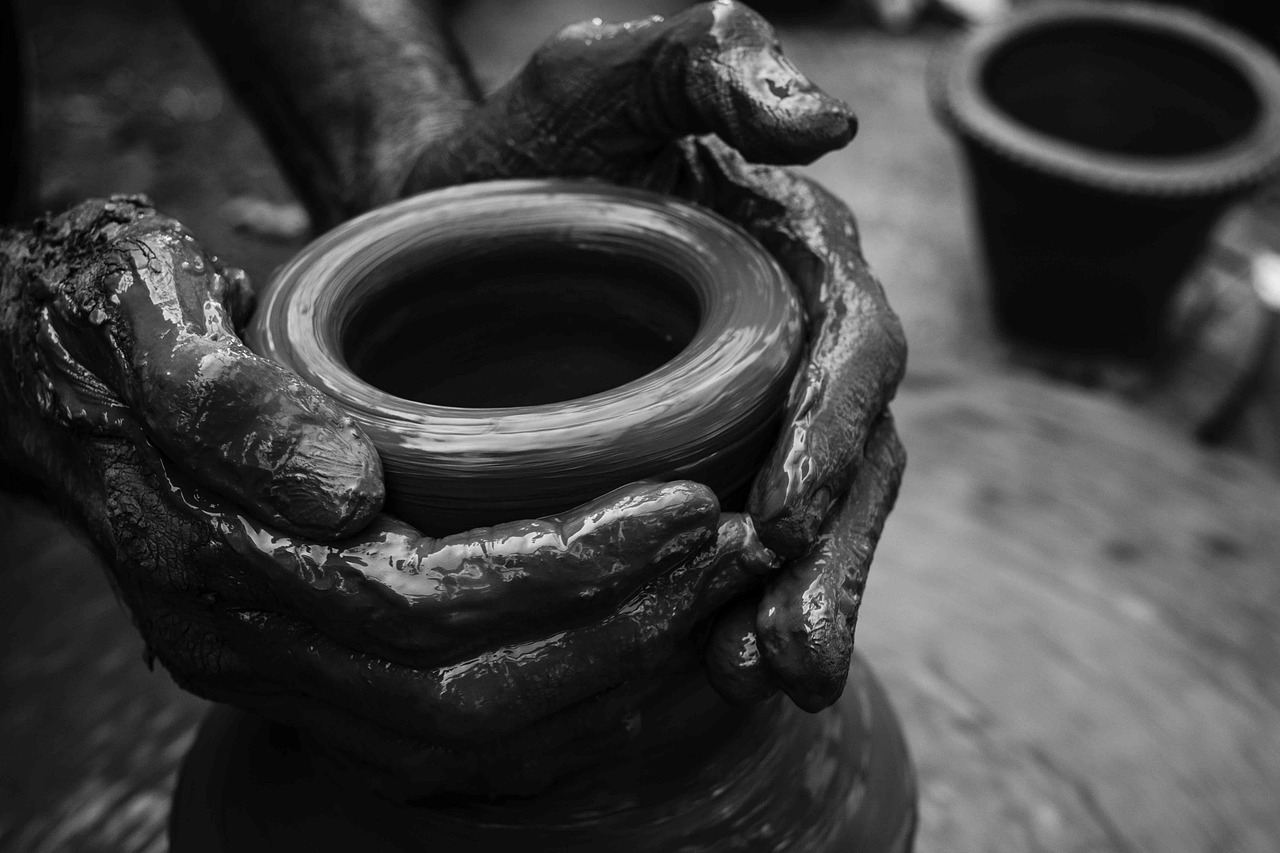Looking back at my high school years, I began to notice a pattern emerging in my life – like notes gradually forming a melody. Mathematics, whether Core or Advanced, along with Chemistry and Physics, weren’t just subjects I studied; they were areas where I naturally excelled. Numbers danced in my mind with an effortless rhythm, equations solved themselves like familiar tunes, and scientific concepts resonated with crystal clarity. But God wasn’t finished composing my life’s symphony. During those same years, my voice found its place in the school choir as a robust alto, my singing echoing across the science blocks during prep time, filling the evening air with worship. Then came the piano – a journey I had started and paused, only to rediscover with renewed passion during my undergraduate years. The keyboard became my sanctuary, each key a stepping stone to deeper musical understanding. As if following a divine crescendo, musical abilities began multiplying: scoring, ideation, arrangements, and even basic proficiency in drums and bass guitar. Music theory unfolded before me like a familiar language, and I could visualize melodies as clearly as mathematical formulas. The harmonies I heard in my mind translated effortlessly into arrangements, each note finding its perfect place.This musical journey reached a beautiful culmination when I married my wife, whose extraordinary vocal talents and keen musical ear complemented her gifted writing abilities. Our union wasn’t just a marriage of hearts but a merging of complementary gifts – a duet composed by divine design.

Yet amid this abundance of abilities – from mathematical precision to musical creativity – a profound question emerged: What was the purpose behind these gifts? Why could I perceive the architecture of music so clearly, hearing and envisioning its potential forms? These weren’t just random talents; they felt like pieces of a greater puzzle, notes in a grander composition. The answer became clear: these gifts weren’t meant for personal acclaim but for divine purpose. Each ability – whether analytical or artistic – was a sacred trust, meant to serve humanity and magnify God’s glory. From the mathematical mind that delights in patterns to the musical soul that creates worship experiences, every gift called for intentional stewardship.
Together, my wife and I realized our responsibility: to share these gifts with the world in meaningful ways, to hone them to excellence, and to use them in service of something greater than ourselves. This realization marked the beginning of our stewardship journey – a commitment to develop and deploy our gifts with purpose and precision.Our story is more than a personal narrative; it’s a testament to how God weaves together different talents and abilities for His glory. Through this lens of stewardship, every equation solved, every note played, and every word written becomes an opportunity to honor the Giver of all gifts.
God blesses each of us with unique treasures – gifts, talents, and abilities that shine like stars in the night sky. These aren’t merely possessions to hold; they’re sacred trusts given to us for a greater purpose. As faithful stewards, we’re called to nurture these divine deposits, letting them bloom and bear fruit in ways that illuminate His glory. Our stewardship is more than mere management – it’s a profound expression of gratitude and love. When we invest our talents wisely, whether through music, teaching, leadership, or service, we’re not just fulfilling a duty. We’re participating in God’s grand design, allowing His light to shine through our dedicated efforts and heartfelt service. This sacred responsibility transforms our daily walks into acts of worship, where every choice to use our gifts becomes a testament to His grace. In this faithful stewardship, we find our truest purpose: being living witnesses of His boundless generosity and love.
“I am a little pencil in the hand of a writing God who is sending a love letter to the world.”
Mother Teresa

Embarking on the Journey
Life presents us with a sacred treasure map, where X marks not gold, but something far more precious: understanding how to use our God-given gifts. Along this path, essential questions light our way: What is God’s purpose for the abilities He’s entrusted to us? How can we ensure our actions reflect His glory rather than our own? These aren’t just philosophical musings – they’re the compass points guiding us toward faithful stewardship. Through Biblical wisdom, we’ll explore how giants of faith managed their divine endowments, and more importantly, how their examples speak to us today. From Moses’ leadership (Exodus 3:10-12, Numbers 12:3) to David’s artistry (Psalms 23, 2 Samuel 23:1), from Bezalel’s craftsmanship (Exodus 31:1-5) to Lydia’s business acumen (Acts 16:14-15), Scripture offers us a rich tapestry of stewardship in action. But this journey goes deeper than just studying the past. It is a long life discipline of our now and the future an even unto the 10th generation. It is not about us but God who we image forth to the world. It is about identifying , developing, and channelling these divine investments for His purpose. After all, true stewardship isn’t about building our own legacy – it’s about leaving footprints that point others toward God. And that is exactly what we want to achieve with “ProfessingGod”. We want to leave footprints that will make others contemplate the glory of God.
Understanding Divine Endowments
Moses’ Leadership (Exodus 3:10-12, Numbers 12:3)
Despite his initial reluctance and speech impediment, Moses stewarded his leadership calling to guide an entire nation from slavery to freedom. His journey from a stammering shepherd to the deliverer of Israel shows how God equips those He calls. In Numbers, we learn that Moses was “very humble, more than anyone else on the face of the earth,” demonstrating that true stewardship flows from humility. His leadership style combined strength with meekness – a powerful reminder that our gifts are meant to serve rather than elevate us
David’s Artistry (Psalms 23, 2 Samuel 23:1)
Before he was King David, he was a shepherd boy with a harp and a heart for worship. His psalms demonstrate how he channeled his artistic gifts to glorify God. Known as the “sweet psalmist of Israel,” David turned his personal experiences – both triumphs and trials – into timeless songs of praise, lament, and thanksgiving. His artistic stewardship continues to touch hearts and guide worship thousands of years later, showing how dedicated talents can have eternal impact.
Bezalel’s Craftsmanship (Exodus 31:1-5)
God specifically filled Bezalel with “the Spirit of God, with wisdom, understanding, knowledge and all kinds of skills – to make artistic designs for work in gold, silver and bronze.” This divine endorsement of craftsmanship shows that technical and artistic skills are spiritual gifts meant for sacred purposes. Bezalel’s stewardship of his abilities in building the tabernacle demonstrates how our creative and technical skills can create spaces for divine encounters.
Lydia’s Business Acumen (Acts 16:14-15)
As a dealer in purple cloth – a luxury item of her time – Lydia was a successful businesswoman. Upon her conversion, she immediately stewarded her resources and business connections for kingdom purposes, opening her home for church meetings and supporting Paul’s ministry. Her example shows how marketplace skills and success can be channeled for spiritual impact.
The impact of good stewardship often outlives the steward
“Gain all you can, save all you can, give all you can.”
John Wesley
True stewardship begins with a profound realization: everything we have – from our talents to our treasures, from our abilities to our opportunities – flows from God’s generous hand. This fundamental truth transforms how we view our lives and resources. As Psalm 24:1 reminds us, “The earth is the Lord’s, and everything in it, the world, and all who live in it.” When this truth takes root in our hearts, it revolutionizes our approach to life and service. Understanding divine ownership shifts our perspective from possession to partnership. We are not owners but trustees, entrusted with precious resources by the Master of all creation. This paradigm shift breeds humility and gratitude, replacing pride with purpose and self-importance with sacred responsibility. Like the servants in the Parable of the Talents, we’re called to be faithful with what we’ve been given, knowing we’ll ultimately give an account of our stewardship.
This sacred trust extends beyond material possessions to encompass our gifts, talents, and abilities. Each capability becomes a tool for kingdom advancement. Whether we’re blessed with leadership abilities, creative talents, or practical skills, these gifts are meant to serve God’s purposes and bless others. The Apostle Peter captures this beautifully: “Each of you should use whatever gift you have received to serve others, as faithful stewards of God’s grace in its various forms” (1 Peter 4:10).Spiritual growth plays a crucial role in this journey. As we deepen our relationship with God, we gain clarity about how to use our resources wisely. Through prayer, study of Scripture, and communion with fellow believers, we develop the wisdom needed to steward our gifts effectively. This growth isn’t optional but essential – it’s the soil from which faithful stewardship grows. The real test of stewardship occurs in the laboratory of daily life. Every decision becomes an opportunity to honor God and serve others. How we manage our time, deploy our talents, handle our resources, and treat others reflects our understanding of stewardship. These daily choices, though seemingly small, weave together to create a tapestry of faithful service that impacts generations.
Yet stewardship isn’t about perfection – it’s about progression. Like a skilled gardener tending precious plants, we’re called to nurture and develop what God has entrusted to us. Sometimes this means taking risks, stepping out in faith, or venturing into unknown territory. Other times, it means being patient, waiting for the right season to deploy our resources. The rewards of faithful stewardship extend beyond the immediate. When we faithfully manage what God has given us, we participate in His eternal purposes. Our efforts, aligned with His will, create ripples that touch lives far beyond our immediate sphere of influence. As Paul writes to Timothy, we “lay up treasure for ourselves as a firm foundation for the coming age” (1 Timothy 6:19).
In conclusion, faithful stewardship is both a privilege and a responsibility – a sacred dance between receiving God’s gifts and deploying them for His glory. As we embrace this truth, may we steward our resources with wisdom and courage, knowing that every faithful act of stewardship echoes in eternity. Let us move forward with renewed commitment, stewarding God’s gifts with excellence, creativity, and love, transforming our corner of the world for His glory. For in the end, the goal of stewardship isn’t just to manage resources well, but to hear those precious words: “Well done, good and faithful servant.” This is the ultimate measure of successful stewardship – not what we’ve accumulated, but how faithfully we’ve administered what was entrusted to us for the advancement of God’s kingdom and the blessing of others.At the heart of stewardship lies the acknowledgment of God’s ownership over all. It is this realization that reshapes our perception of possessions and abilities, fostering an attitude of gratitude and humility.
For citations: ProfessingGod.com/[article-url]